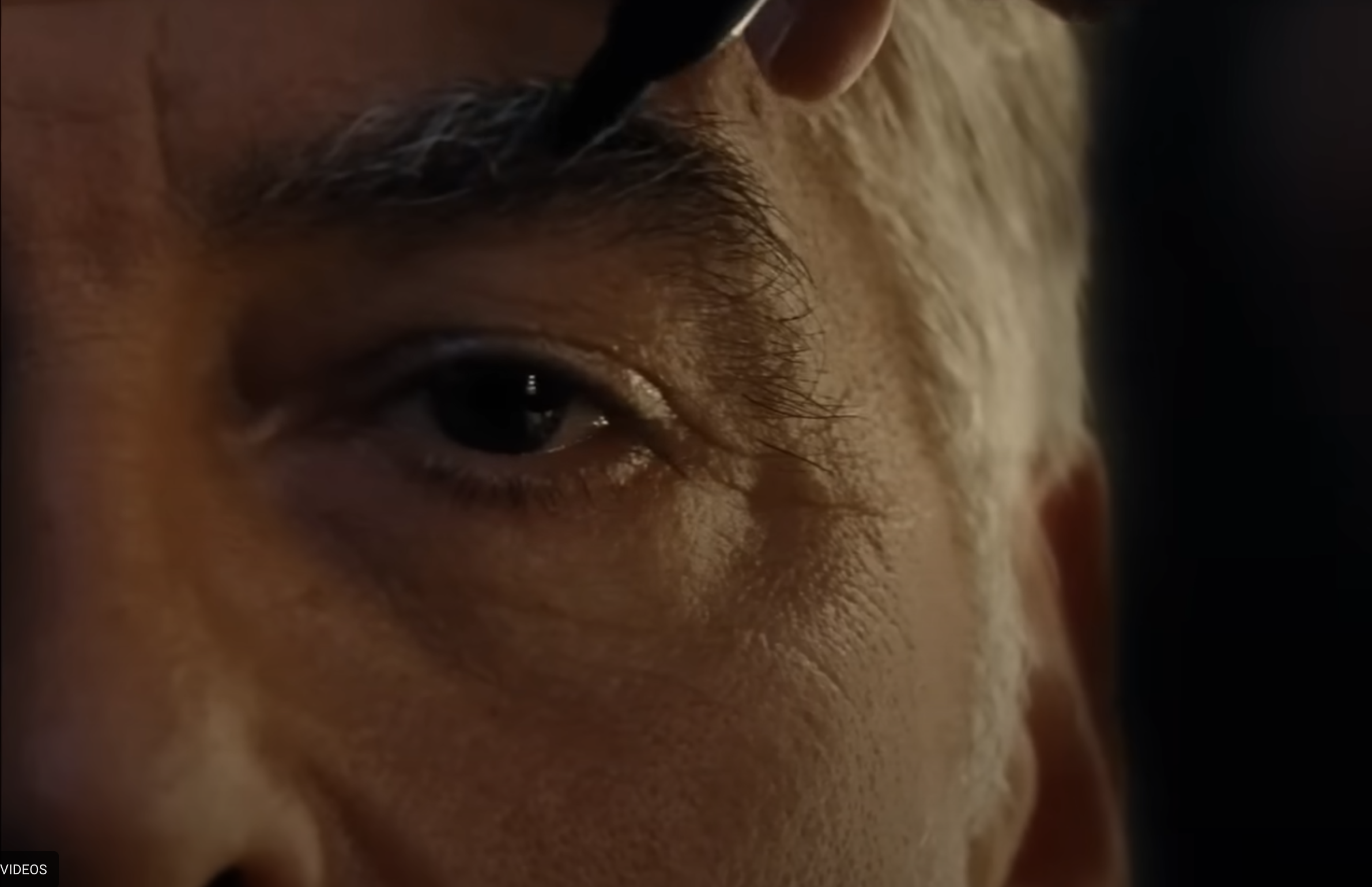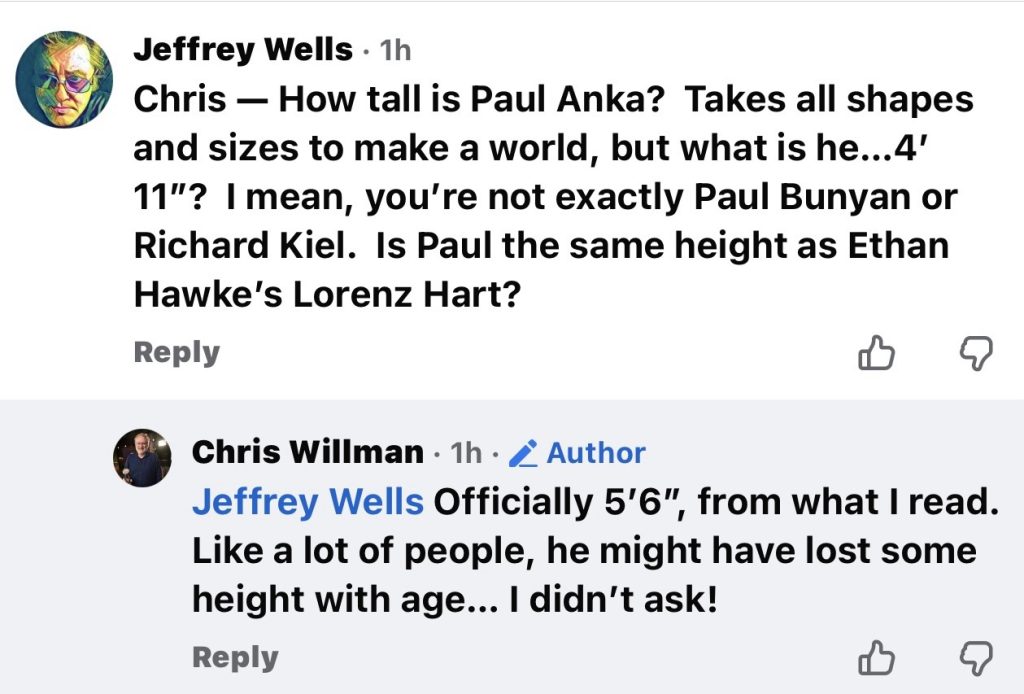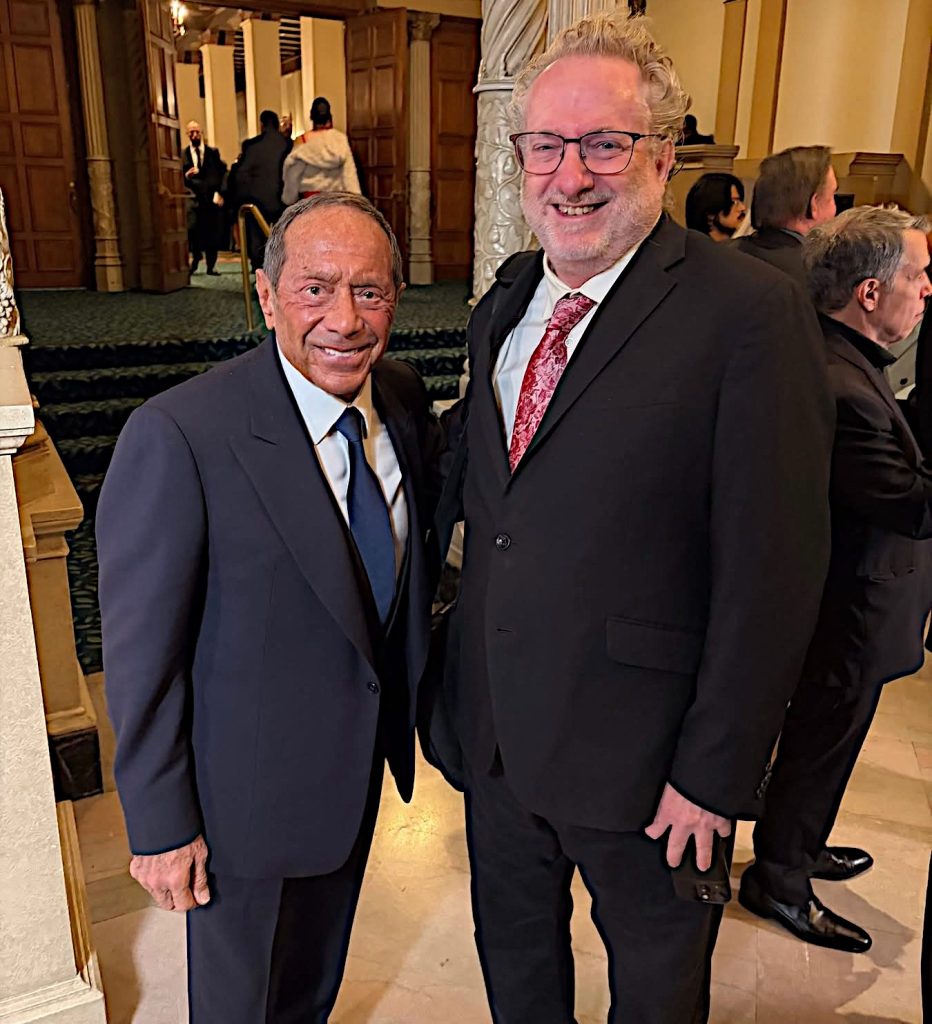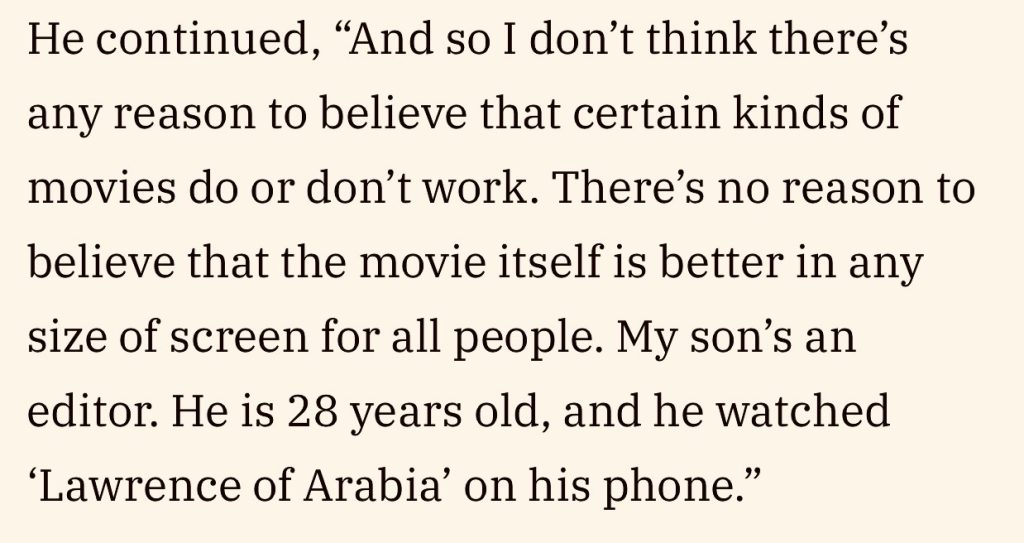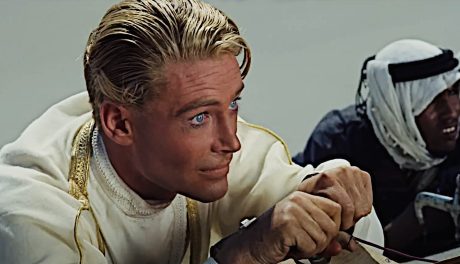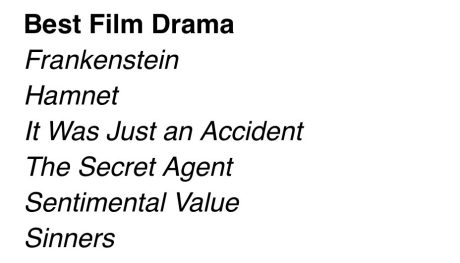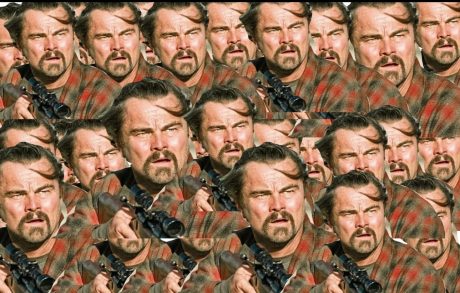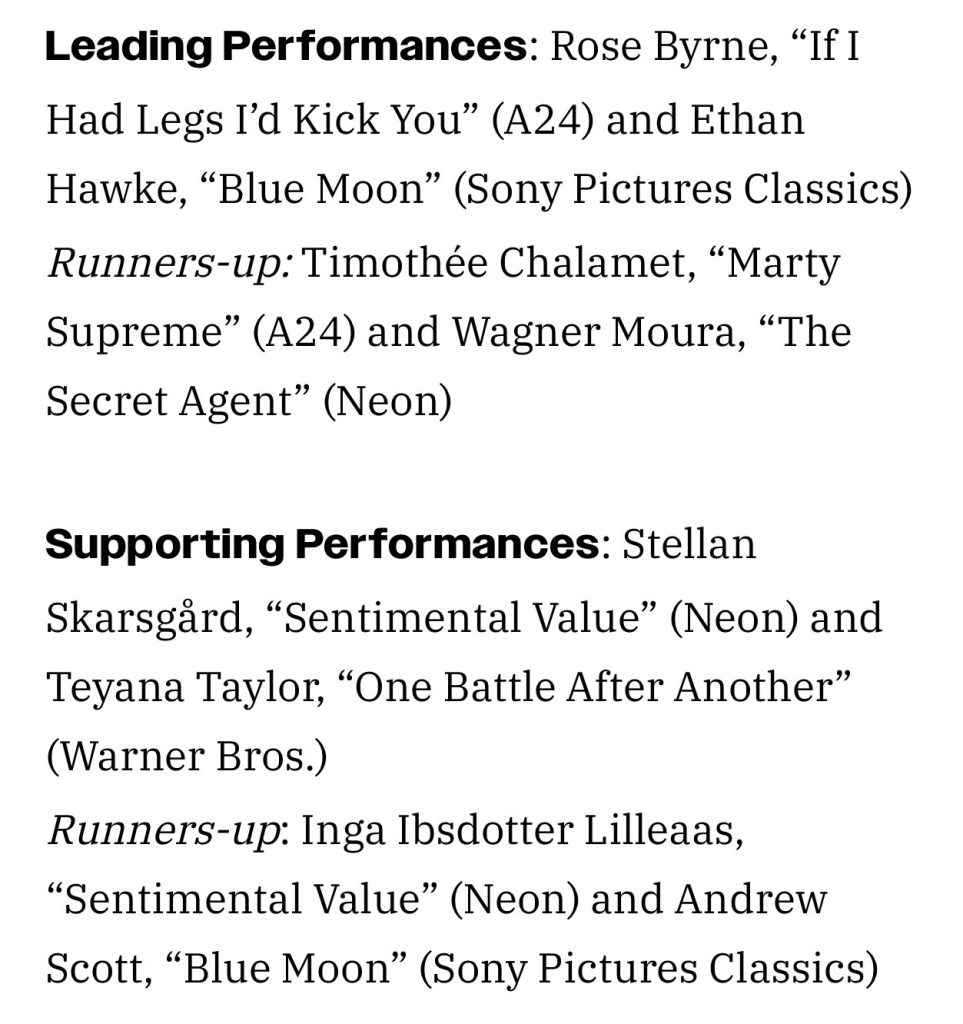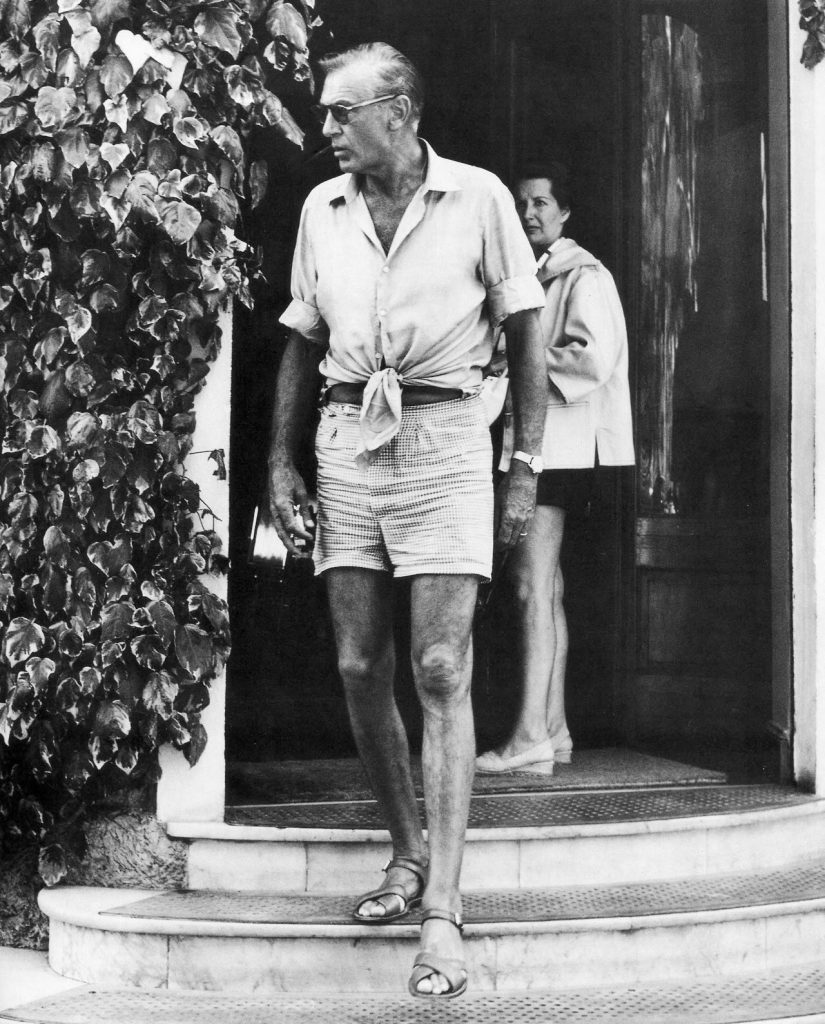
Filed from Venice on 8.28.25:
Noah Baumbach‘s Jay Kelly (Netflix, 11.14) — a reflection-and-meditation piece about a 60ish movie star’s life (in some respects literally George Clooney’s, one gathers or infers, and doubly so during a tribute at the very end which presents a montage of Clooney’s films) — is actually fairly decent, and it ends in a very affecting and bittersweet way.
It’s a summary of a rich guy and his famous life and what it’s all meant or seems to mean, and the final emotional residue in terms of friends, family, selfishness, distractions, blessings, highs and lows…really the whole magillah.
It’s generally fast and fleeting and briskly assembled, and is actually reminiscent, in some respects and as curious as this may sound, of Charles Dickens‘ “A Christmas Carol” (in particular the 1951 film version that Brian Desmond Hurst directed and which Alistair Sim brought to life), especially as the film is largely about Clooney’s Kelly absorbing a series of some uncomfortable and sometimes painful realizations about how his business associates, old friends and especially his two daughters really feel about him.
It’s not a masterwork — it doesn’t feel heavy or deep enough, and seems a bit facile at times — and it’s certainly not on the corrupted-adult level of Tony Gilroy‘s Michael Clayton, in which Clooney gave his finest performance.
But Clooney plays it openly and with vulnerability — he knows this line of country like the back of his hand — and the film itself conveys, persuades, penetrates. It sells its own movie-star, “this is the life he’s chosen” narrative.
At times Jay Kelly feels a bit old-fashioned — very “scripted”, very “acted” and a little schmaltzy here and there, and the visual flashback transitions are almost on the level of The Man Who Shot Liberty Valance (’62).
But it finally feels whole and melancholy and solemnly considered, especially at the very end. It’s expansive and exploratory and fully felt, and is very well acted by not just Clooney but by Adam Sandler (as Jay’s manager), Laura Dern (publicist), Billy Crudup (former acting buddy), Riley Keough (daughter #1), Grace Edwards (daughter #2) and Stacy Keach (roguishly “charming” dad on the downswing).
Jay Kelly is a show and a “movie” but it works according to its own delivery terms, and is certainly better than I thought it would be, and the final line absolutely kills — it even brought a tear to my eye.
It’s therefore a solid A-minus or a B-plus, and Clooney and Sandler really touch bottom, bring the goods.
Quibble #1: Everyone in Kelly’s inner circle has pretty much written him off emotionally. They regard him as flaky, immature, undependable, self-absorbed. But that’s what many big-time actors are for the most part, no? Doesn’t everyone accept this? Many and probably most famous actors are in love with themselves first, and their family and friends second. Big deal. Roll with it.
Quibble #2: Billy Crudup plays a 50ish might-have-been actor who resents and is actually enraged at Kelly for having stolen a key part that Crudup had auditioned for and badly wanted at the time, but the annals of film acting are filled with stories about a friend who was just tagging along who wound up getting the role from an impromptu audition instead of the primary guy. Just because Crudup was extra-hungry for the role in question doesn’t mean he was entitled to it, or that he was right for it. Mature people understand that life can be an unfair.
Quibble #3: Nobody would ever refer to a big film tribute event taking place in “Tuscany”…they would say Siena or Florence or Volterra or Radda in Chianti. Just like no one would talk about a similar-type event in the States happening in the “Deep South” or the “Pacific Northwest.”

